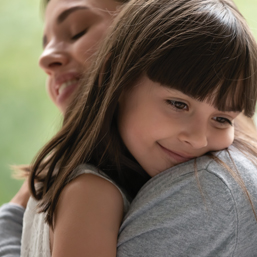
I used to think I would be the perfect parent… and then I had kids! I laugh about it now and wonder how I was so naïve. Perfection in parenting is impossible when it comes to the complexities of life and the human condition. After all, we're busy. We are juggling multiple responsibilities, demands on our time is increasing, resources may be wearing thin, our children are coping with everyday learning, and our emotions are up and down. We’re all stressed, and the pandemic has only heightened it. As a parent, while you can’t fix everything, recognition, parent coaching, and behavioral therapy can help your family cope and make life a little easier.
When things go off track
The first thing you need to do is be aware of what your child’s typical behavior is so you can recognize when things are off track. Feeling stressed, nervous, and sad are normal. It’s when these feelings begin to interfere with everyday functioning that these feelings become problematic and begin to show up behaviorally in your child. But your child may not have the language to tell you when something is not quite right because behavior is the language of children. Some common signs of built-up stress, anxiety, or depression in children are difficulties with focus, fidgeting, having trouble starting or completing tasks, irritability, stomach aches, headaches, resisting activities they used to enjoy doing, changes in eating habits, engaging in oppositional behaviors. Do any of these signs look familiar?
While some children express their stress and worries outwardly, others turn their difficulties inward. Inward signs of stress in your child may include staring off into space, being inattentive, appearing sad, becoming quiet, hiding or fading into the background, and experiencing physical ailments. Sometimes, because these inward signs are not always obvious, these children get overlooked. It’s important to recognize the behavioral changes in your child, so you can learn how to better help them. You want to avoid having your child mislabeled as being rude, disruptive, a troublemaker, and/or thought of as lazy or having bad work ethic. Instead, acknowledging the reason why they are acting the way they are and supporting their current underlying needs will go a long way to supporting change.
Skills for coping
Once you recognize the changed behaviors in your child, you can work on helping them find ways to get ‘unstuck’ and get back to a calmer way of being. You do this through gaining new perspectives and supporting increased skills for coping. While some of us can do this easily, some of us might be looking for support in more intentional and targeted ways. Cognitive Behavior Therapy (CBT) is an approach that works for people of all ages. It is known to significantly improve people’s understanding of their struggles, teach them skills to cope with stressors, support new healthy ways of thinking, regain contentment, and increase self-esteem.
Through behavioral therapy and approaches, such as CBT, your child will learn new skills and strategies to help them better manage the changes, upsets, big feelings, and even the successes in their life. They will learn how to identify their many strengths. They will also learn about why their struggles are there and how to manage them. Your child will learn to define small achievable goals to conquer. A feeling of achievement promotes an increase in self-esteem. Your child will learn how to be resilient, self-assured, and advocate for themself.
Your child is part of the family system. When working with a child, treatment is often most effective when you are involved. Through parent coaching, you will be invited to think differently about your child’s struggles. You will learn skills and strategies that use positive reinforcement, structure, and predictable outcomes to encourage your child’s success with identified goals. You and your child will learn positive ways to interact and communicate with each other. You will learn how to identify your child’s strengths and are provided guidance regarding how to advocate for them. Together, you and your child will learn how to better understand each other and how to help each other thrive - even in difficult times.
The benefits of parent coaching and behavioral therapy can be significant. We are imperfect human beings who are by nature on a learning path. Embracing the struggle, growing within our knowledge and wisdom, and forgiving ourselves for our missteps are part of the parenting journey. Asking for help when feeling overwhelmed or unsure is a strength. Parenting is a tough, though rewarding job. While we may not be perfect, as a friend said to me, “When you know better, you do better.”
Nicole Sheldon, R. Psych., has been working with children and families for over 25 years. Nicole holds a permanent teaching certificate and understands classroom functioning. She is passionate about supporting children and families in achieving success and dignity in their lives through assessment, intervention, and collaborative approaches. The specialized team at Sheldon Psychology Group offers several types of services. For more information, email This email address is being protected from spambots. You need JavaScript enabled to view it. or visit sheldonpsychology.com.
Calgary’s Child Magazine © 2024 Calgary’s Child